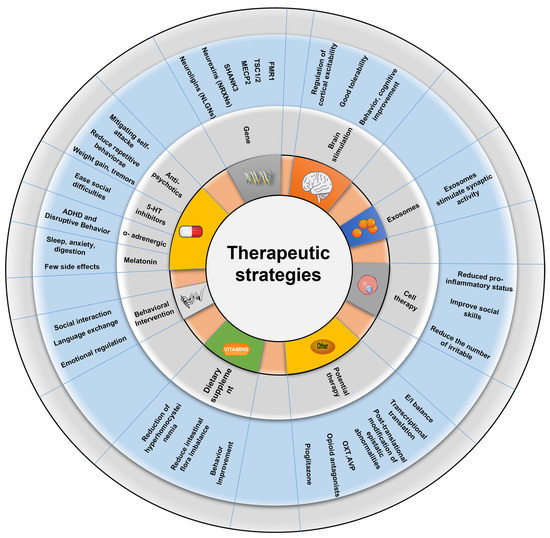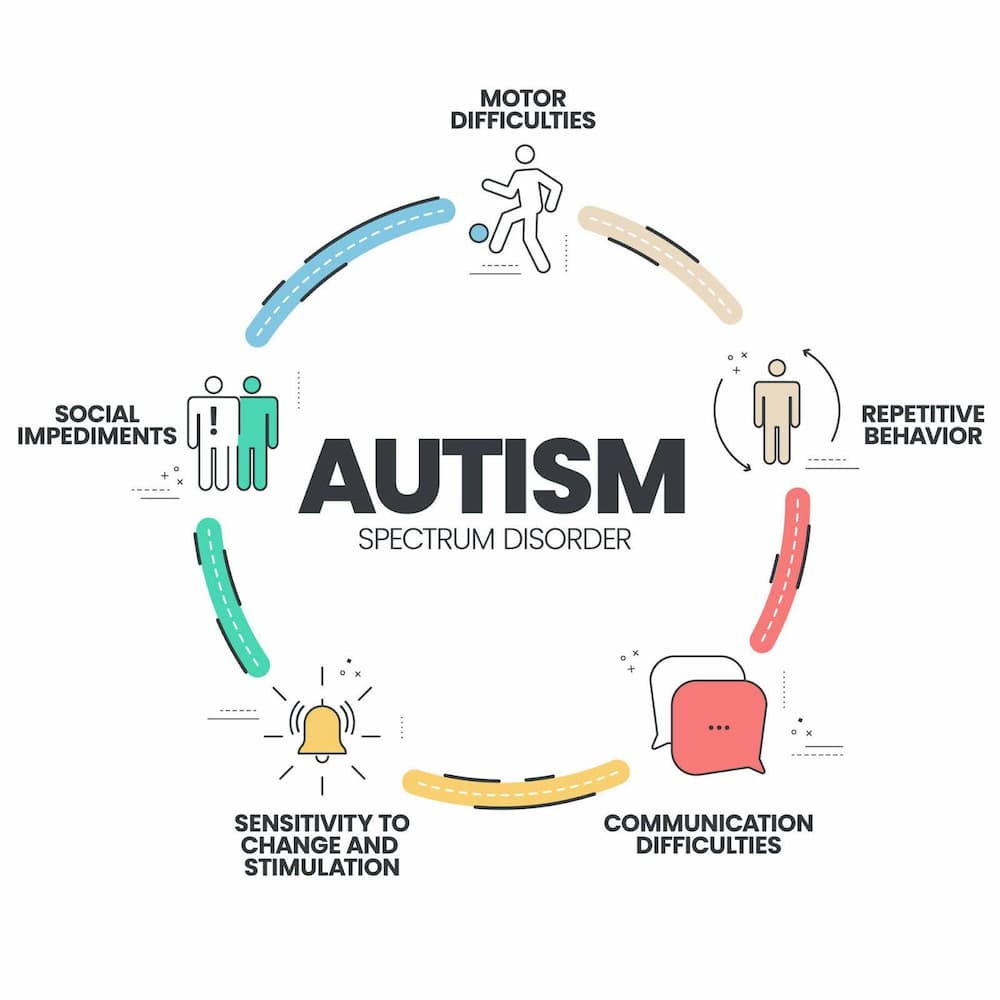Unique abilities often seen by an experienced Autism Therapist
Unique abilities often seen by an experienced Autism Therapist
Blog Article
Advertising Inclusivity: Exactly How to Create Helpful Atmospheres for Those With Behavioral Autism
Developing supportive settings for individuals with behavior autism is crucial for cultivating inclusivity. What details actions can you take to assure these individuals flourish in various settings?
Comprehending Behavior Autism: Trick Qualities and Difficulties
Understanding behavioral autism involves acknowledging its essential qualities and the obstacles it offers. People with autism often display problems in social communication, interaction, and repeated actions.

Supporting someone with behavioral autism suggests holding your horses and adaptable. You'll need to develop an atmosphere that lessens stress and anxiety and advertises convenience. Familiar regimens can aid, together with clear, constant communication. Recognizing these qualities will certainly lead the way for a lot more efficient support and a much more inclusive atmosphere.
The Role of Empathy in Sustaining People With Autism
Compassion plays a crucial role in sustaining people with autism by assisting you understand their special perspectives. By practicing active listening techniques, you can build emotional links that foster trust and communication - Autism Therapist. This understanding not only improves your relationship however additionally creates a much more supportive setting for them
Understanding Unique Point Of Views
When you think about the one-of-a-kind viewpoints of individuals with autism, it ends up being clear just how crucial compassion is in giving reliable support. Each person's experience is formed by different sensory sensitivities, communication styles, and psychological responses. By entering their footwear, you can begin to understand their globe. This understanding helps you react a lot more thoughtfully to their needs and challenges. Acknowledging their strengths and struggles cultivates a deeper link, building trust fund and encouraging open interaction. Your ability to empathize enables you to develop an environment where they really feel risk-free, valued, and understood. This supportive ambience empowers individuals with autism to reveal themselves, ultimately improving their wellness and growth. Empathy is not just a skill; it's an essential foundation for meaningful connections.

Active Listening Strategies
Active listening methods play an essential function in supporting individuals with autism, as they foster a much deeper connection and understanding. You show that you value their thoughts and sensations when you involve in active listening. Keep eye call, nod, and use spoken affirmations to signal your listening. Paraphrase what they claim to validate your understanding, and ask flexible questions to encourage further expression. Stay clear of disrupting, allowing them to articulate their points fully. Bear in mind your body language; it needs to be open and welcoming. By exercising these strategies, you develop a risk-free room where individuals really feel listened to and respected, inevitably enhancing their communication and psychological well-being. Empathy beams through when you actively pay attention, strengthening your connection with them.
Building Emotional Links
Producing an encouraging atmosphere via active listening naturally leads to constructing emotional connections with individuals on the autism range. When you absolutely involve, you're not simply hearing their words; you're understanding their sensations. This compassion cultivates trust fund, allowing them to express themselves openly. Use nonverbal cues, like eye contact and nodding, to show you're present and purchased their experiences.

Effective Interaction Techniques for Inclusivity
Reliable communication approaches play a necessary role in promoting inclusivity for people with behavioral autism. Start by utilizing clear, simple language that's simple to recognize.
Nonverbal cues are similarly vital. Take note of your body language, faces, and intonation, as these can communicate greater than words. Maintain eye contact and use motions to boost understanding.
Furthermore, hold your horses and give individuals time to process details. Encourage them to share their sensations and thoughts, revealing that their input is valued.
Active listening is crucial; repeat or reword what they have actually said to verify understanding. Finally, adapt your communication techniques based upon specific choices, whether it's with visual aids, composed directions, or various other devices. This individual touch reinforces inclusion and helps build meaningful connections.
Tailoring Support Systems in Educational Settings
In academic settings, you'll wish to focus on Individualized Education Plans (IEPs) that accommodate each student's unique needs. Creating a sensory-friendly class design can likewise enhance learning by reducing disturbances and advertising comfort. Together, these approaches can cultivate a setting where trainees with autism flourish.
Individualized Education Strategies
While maneuvering via the complexities of autism in instructional settings, Individualized Education Program (IEPs) play a vital duty in tailoring support systems to fulfill each student's distinct requirements. It's vital to collaborate with instructors, professionals, and your child to produce a comprehensive strategy. Bear in mind, an effective IEP is not just a paper; it's a living device that adjusts to your child's developing requirements, guaranteeing they grow in their educational environment.
Sensory-Friendly Classroom Style
Developing a sensory-friendly class can significantly improve the understanding experience for pupils with autism. Beginning by evaluating your classroom's lighting; soft, natural light can decrease overstimulation. Integrate versatile seating choices, like bean bags or floor pillows, to enable trainees to discover their convenience zone. Use soothing colors on walls and style to develop a soothing atmosphere. Consider including sensory edges with fidget devices, noise-cancelling earphones, or weighted blankets for students that require breaks. Arrange areas to lessen clutter, helping students concentrate far better. Establish clear routines and signals to communicate adjustments, reducing stress and anxiety. By making these modifications, you'll produce an environment where pupils with autism really feel a lot more supported and taken part in their understanding trip.
Producing Inclusive Workplaces for Individuals With Autism
To cultivate a really comprehensive office for individuals with autism, companies need to recognize the special strengths and difficulties these individuals bring. Begin by promoting clear interaction and providing in-depth job summaries that outline assumptions. This aids individuals recognize their roles far better and reduces anxiousness.
Consider carrying out flexible job setups, such as remote work or changed hours, to accommodate different individual preferences and sensory requirements. Training your team on autism understanding is crucial; it can enhance empathy and advertise a supportive environment.
Developing quiet spaces where workers can reenergize during difficult minutes can additionally make a significant difference. Motivate using assistive technologies that help improve jobs and boost efficiency.
Eventually, valuing variety will certainly not only benefit individuals with autism however will likewise enhance the entire group, leading to a more ingenious and vibrant office. Welcome these approaches to grow an environment where everybody can grow.
Motivating Social Communication and Neighborhood Involvement
Urging social communication and area involvement is essential for individuals with autism, as it aids construct self-confidence and cultivates purposeful partnerships. To produce a helpful atmosphere, start by providing opportunities for people to get in touch with others in a comfy setup. Organize group tasks that accommodate different interests, such as art classes, sports, or area solution jobs.
You can also facilitate smaller sized, structured gatherings where everyone can share their experiences and ideas. Motivate open communication by modeling respectful listening and compassion. Establishing peer mentorship programs can help develop bonds and supply assistance.
Involve family members and regional organizations to widen the support network and promote comprehensive events. Bear in mind, the secret is to create secure areas where individuals with autism really feel valued and understood. By cultivating these connections, you'll help them prosper socially and establish a feeling of belonging within the neighborhood.
Resources and Tools for Structure Supportive Atmospheres
While building helpful environments for people with autism may appear challenging, a number of resources and devices can make the process much easier and more reliable. Take into consideration utilizing aesthetic supports like routines or social tales to help individuals recognize their social situations and everyday regimens. Applications developed for interaction, such as AAC (Augmentative and Different Communication) tools, can additionally boost interaction.
Furthermore, training programs for personnel and volunteers on autism understanding can advertise empathy and understanding in your neighborhood. Check into regional organizations that use workshops or sources customized for sustaining people with autism.
Developing sensory-friendly rooms with relaxing components-- like soft lighting and silent locations-- can profit those that may end up being overloaded. Establishing links with neighborhood support groups can give recurring support and feedback, helping you improve your technique and assurance inclusivity for all.
Frequently Asked Inquiries
Exactly How Can I Educate Others Concerning Behavioral Autism Properly?
To inform others about behavior autism properly, share personal stories, give clear resources, and encourage seminars - Aba Therapist. Use relatable instances and highlight the value of understanding various viewpoints to foster compassion and understanding
What Are Common Misunderstandings Regarding Autism That Required Dealing With?
You may assume autism just influences communication abilities, but that's simply one aspect. Lots of think it's entirely a childhood years condition, when as a matter of fact, it spans throughout every ages and materializes in different ways for each person.
Just How Can I Promote for Autism Recognition in My Community?
You can promote for autism recognition by arranging area events, sharing interesting resources, and working together with neighborhood companies. Use social networks to get the word out, and encourage open conversations to promote understanding and approval.
Exist Specific Sensory-Friendly Spaces for Individuals With Autism?
Yes, lots of areas offer sensory-friendly areas, like peaceful areas in collections, specialized play areas, or designated hours at museums. You can check out neighborhood sources and supporter for even more inclusive spaces to support individuals requiring them.
What Duty Do Family Members Members Play in Sustaining Individuals With Autism?
Member of the family play a necessary duty in sustaining people with autism. You can provide motivation, persistence, and understanding. By proactively getting involved in their lives, you aid build confidence and foster independence, creating a nurturing environment.
Creating supportive environments for individuals with behavioral autism is important for promoting inclusivity.Creating a supportive environment via energetic listening naturally leads to building emotional connections with people on the autism spectrum. Creating Inclusive Workplaces for Individuals With Autism.
To foster a truly comprehensive office for people with autism, companies need to acknowledge the special strengths and challenges these people bring. Keep in mind, the read more secret is to create secure areas where individuals with autism really feel valued and comprehended.
Report this page